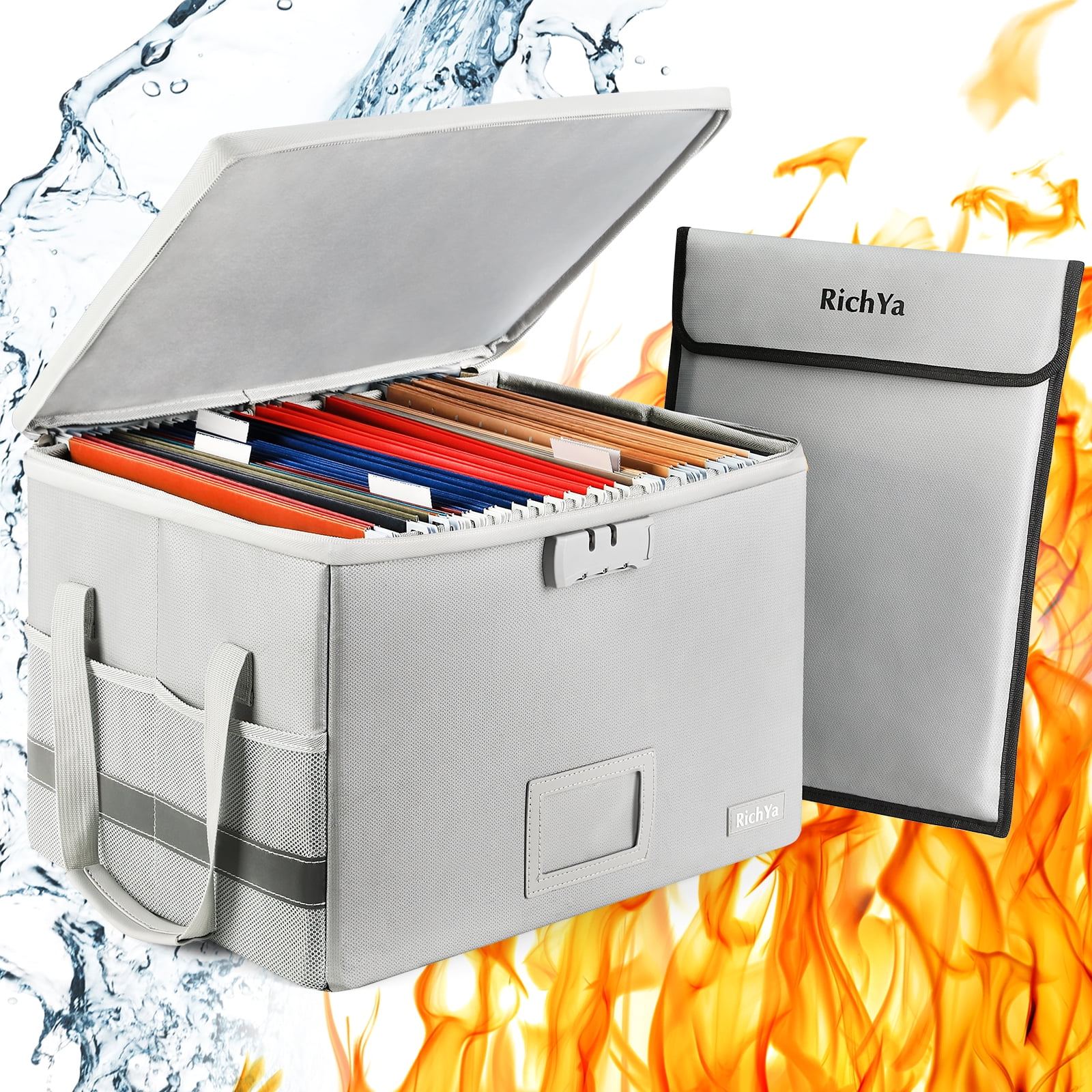Fireproof Storage Boxes For Garage Documents

This comprehensive guide explores features, types, sizes, and best practices for protecting your garage papers. Learn how to choose the right box and safeguard your family’s history and financial security.
Keywords: fireproof storage boxes, garage document storage, fireproof document storage, fire resistant boxes, document protection, fire safety, home fire safety, important documents, record keeping, archival storage, fireproof filing cabinet, waterproof storage boxes, fireproof safe, data protection, garage organization, home organization, document security, identity theft prevention, disaster preparedness, fire damage prevention, water damage prevention, best fireproof storage boxes, how to choose a fireproof box, fireproof box reviews
Introduction:
The garage. A space often overflowing with forgotten treasures, seasonal items, and… important documents. From tax returns and insurance policies to family photos and irreplaceable heirlooms, your garage might be housing a treasure trove of irreplaceable papers. But what happens when disaster strikes? A fire, a flood, even a simple burst pipe can obliterate years of carefully accumulated records in an instant. Investing in fireproof storage boxes is no longer a luxury; it’s a crucial step in safeguarding your family’s history, financial security, and peace of mind.
Table of Content
This comprehensive guide delves into the world of fireproof storage boxes, providing you with the knowledge and insights to make an informed decision and protect your valuable documents stored in your garage. We’ll explore the features to look for, different types of boxes available, sizing considerations, and best practices for maintaining optimal document protection.
Understanding Fire Resistance Ratings:
Before diving into specific products, it’s crucial to understand how fire resistance is rated. Fireproof storage boxes aren’t truly "fireproof," as no container can withstand infinite heat. Instead, they’re designed to be fire-resistant, offering protection for a specified period at a particular temperature. Look for boxes that meet or exceed industry standards, often indicated by ratings such as:
Related Article Fireproof storage boxes for garage documents
- Garage Door Spring Weight Calculator: A Comprehensive Guide
- Garage Door Repair Services Near Me Free Estimates
- wood roll up door
- shipping container storage ideas
- Affordable Garage Cabinet Systems For DIY Installation
- UL Rating: Underwriters Laboratories (UL) is a globally recognized safety science company. A UL rating indicates the box has been tested and certified to withstand specific fire conditions for a defined duration. The higher the rating, the greater the protection.
- Other certifications: While UL is the most common standard, other organizations may offer similar certifications. Check for reputable certifications to ensure the box meets acceptable fire-resistance standards.

Types of Fireproof Storage Boxes:
The market offers a variety of fireproof storage boxes, each with its own advantages and disadvantages. Understanding these differences will help you choose the best option for your needs:
- Filing Cabinet Style: These offer larger storage capacity and are ideal for substantial document collections. They often provide added security with locking mechanisms, protecting against theft as well as fire.
- Chest Style: These compact boxes are portable and ideal for smaller collections of important documents. They are often more affordable than filing cabinets but may have limited capacity.
- Portable Boxes: Designed for easy transport, these boxes are perfect for quick evacuation during an emergency. They are usually smaller and lighter than filing cabinets but still offer a degree of fire protection.
- Media Boxes: Specifically designed to protect digital media like CDs, DVDs, and hard drives from fire and water damage. These often feature internal dividers for organization.

Choosing the Right Size and Capacity:
The size of the fireproof storage box you need depends entirely on the volume of documents you intend to store. Consider the following factors:

- Document Volume: Accurately assess the amount of paperwork you need to protect. Measure the space your documents occupy to ensure the chosen box offers sufficient capacity.
- Future Growth: Allow for some extra space to accommodate future documents. Buying a slightly larger box than you immediately need is a wise investment.
- Accessibility: Ensure the box is easily accessible when you need to retrieve documents. Consider the location in your garage and whether you’ll need to move heavy boxes frequently.

Features to Look for in a Quality Fireproof Storage Box:
Beyond fire resistance, several other features can enhance the security and longevity of your storage solution:
- Water Resistance: Many fireproof boxes also offer water resistance, protecting your documents from water damage in case of flooding or leaks. Look for boxes with a waterproof seal or gasket.
- Locking Mechanisms: A secure locking mechanism prevents unauthorized access and protects your sensitive documents from theft. Consider a combination lock for added convenience.
- Durable Construction: Choose a box made from high-quality, robust materials that can withstand the rigors of everyday use and potential impact damage.
- Internal Organization: Some boxes feature internal dividers or shelves for better organization and easier access to specific documents.
- Portability: If you anticipate needing to move the box, consider its weight and portability. Handles or wheels can significantly improve maneuverability.
Best Practices for Storing Documents in Fireproof Boxes:
Even with the best fireproof storage box, proper document organization and storage practices are crucial:
- Inventory Your Documents: Create a detailed inventory of all documents stored in the box, including descriptions and dates. This list will be invaluable in the event of a disaster.
- Organize Your Documents: Use folders, dividers, or other organizational tools to keep your documents neatly arranged. This makes retrieval much easier.
- Regularly Review and Purge: Periodically review your documents and discard outdated or unnecessary items. This prevents overcrowding and keeps your records up-to-date.
- Protect Against Pests: Use airtight containers or desiccant packets to protect your documents from pests and moisture damage.
- Store in a Cool, Dry Place: Avoid storing your fireproof box in direct sunlight or excessively humid areas.
- Consider Off-Site Backup: For truly irreplaceable documents, consider storing digital copies or physical backups in a secure off-site location. This provides an extra layer of protection against total loss.
Choosing the Right Location in Your Garage:
The placement of your fireproof storage box within your garage is also important:
- Away from Flammable Materials: Keep the box away from flammable liquids, chemicals, and other combustible materials.
- Elevated Position: If possible, place the box on a shelf or elevated surface to protect it from potential flooding.
- Easy Access: Ensure the box is easily accessible in case of emergency, but not in a high-traffic area that could cause accidental damage.
Conclusion:
Protecting your valuable documents from fire damage is a critical aspect of home safety and financial security. Investing in high-quality fireproof storage boxes and following best practices for document storage significantly reduces the risk of irreparable loss. By carefully considering the factors discussed in this guide, you can choose the right fireproof storage solution for your needs and safeguard your family’s history and financial future. Don’t wait for disaster to strike – take proactive steps today to protect your precious papers.
Call to Action:
Ready to protect your important documents? Browse our selection of fireproof storage boxes today and find the perfect solution for your needs. [Link to relevant product page]
Disclaimer: This article provides general information about fireproof storage boxes. Always refer to the manufacturer’s instructions for specific safety guidelines and usage recommendations. This information does not constitute professional advice and should not be considered a substitute for professional consultation.





